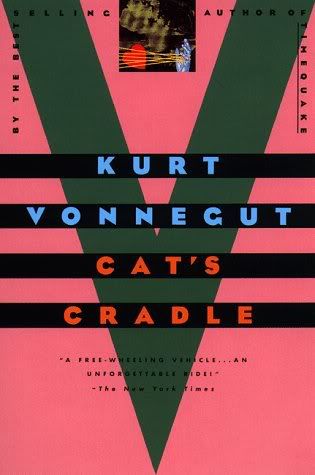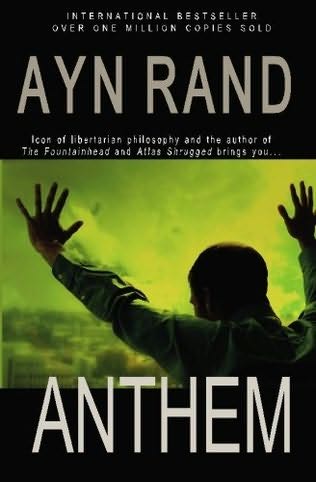
Cat's Cradle by Kurt Vonnegut is an entertaining satirical novel that puts both science and religion under the spotlight. Using diction, humor, and writing style, Vonnegut gives a clear social commentary on his feelings as to the advances of science and religious beliefs.
PART A:
A predominant symbol in the novel is Dr. Hoenikker's Ice Nine. A vastly important invention, since one speck could cast an apocalyptic global freezing that would end the world, ice nine plays a vital role in Vonnegut's social commentary on science. This symbol essentially can be used to define the meaning of the work as a whole by itself: humanity must be wary of technology because for all the good that science attempts to bring about, it can result in dire consequences. Vonnegut applifies this meaning by making the way in which ice nine brings about the end of the world so ridiculous. This is the nature of a satirical piece and Vonnegut uses this ridiculous event to make his point. Papa commits death by ice nine and then a plane crashes, shaking Papa's frozen body into the sea and destroying the world. How unbelievable is this? This incident is used to show Vonnegut's meaning that even an accident in science can have terrible implications. Ice nine also shows how science needs to be more morally aware. Dr. Hoenikker made ice nine simply to prove that he could make it. However he did not consider the implications it could cause had a simple accident like tripping and dropping it into a river or if it had fallen into the wrong hands of a terrorist who wished to destroy the world. Vonnegut is saying that science should not create things that need not and should not be created just because they can be. They should be more careful of what they do and should look to the future as to what their actions could lead to, even if they had been intended to do good.
PART B:
One of best quotes from the novel that points right to Vonnegut's feelings on science is found on page 31. "A winded, defeated-looking fat woman in filthy coveralls trudged beside us, hearing what Miss Pefko said. She turned to examine Dr. Breed, looking at him with helpless reproach. She hated people who thought too much. At that moment, she struck me as an appropriate representation for almost all mankind" (31). This is a great description. This woman is so fed up with science's ideas that everything is analytical and that scientists place too much importance on discovery and research, she has become tired for fighting. She has been dragged down by the unbearable weight that she feels from science and the role that it plays in everyday life, and now she has capitulated and cannot go on. What a great sentence when Vonnegut writes that at that moment she was a perfect representation of almost all mankind. That is saying something. It could be that science plays too much of a role in everyday life and people simply do not care or do not understand it. Either way, science plays too much of a role and the constant analytical nature of it stands in contrast to the ideas that most care about.
PART C:
This novel was a good book. It was enjoyable to read since its satirical nature made it comical and a fun book to read. The constant jabs at science and religion really stood out to me and I was able to make many connections with what Vonnegut was saying. Also the superficial nature of the characters was entertaining and informative. Many of the characters were on such a one way track, either science or religion, they were unable to see the other side and unable to realize the importance that the other side plays in life. If I were to recommend this novel to another, I would tell him or her that it is a good novel, not the best, and that does take a while to get into since for the first hundred pages at least you do not see where the novel is going at all. However, on the whole I would recommend it to anyone.

